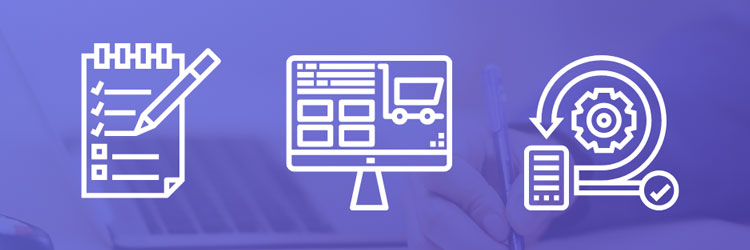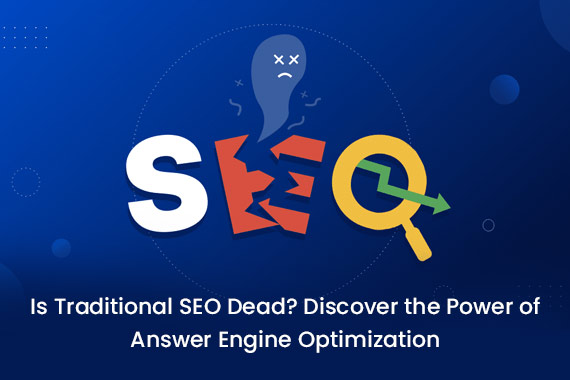5 Major Tips That Improve SEO Strategy with AI!

Search Engine Optimization (SEO) is crucial for driving relevant organic traffic to your website. With the rapid advancements in artificial intelligence (AI) and machine learning, leveraging AI-based tools can significantly enhance your SEO efforts. At Matebiz Pvt Ltd, we use the latest AI technologies to formulate data-driven SEO strategies for our clients.
Table of Contents
1. Here are five significant tips to improve your SEO strategy with the help of AI:
1.1 Keyword Research
Keyword research lays the foundation of an effective SEO strategy. Rather than relying on guesswork, AI-powered keyword research tools like our proprietary software can help uncover profitable keywords and search queries that align with your business goals.
Some significant benefits include:
- Accurate monthly search volume and competition metrics for keywords
- Related keywords and long-tail variations
- Keyword difficulty scores
- Historical keyword performance tracking
With such data-backed insights, you can identify the correct key terms to target through your SEO campaigns and content.
Expanding Keyword Scope with AI
The keyword research process goes beyond extracting relevant keywords from Google’s autocomplete and related queries. AI enables you to discover closely related semantic keyword variations automatically.
The search query intent can be expanded into a cluster of similar keywords by analyzing word vectors and embeddings. This allows you to significantly increase your target keyword scope beyond what humans can manually conceptualize.
Building a comprehensive keyword universe is the starting point for crafting focused content experiences. Embeddings also help discover relevant long-tail keywords with higher conversion potential.
Performance Tracking Over Time
With AI-based rank trackers, you can evaluate how well your target keywords perform over months. The rank-tracking algorithm collects search ranking data across devices and locations to build a holistic picture.
Monitoring metrics like impressions, click-through rates, and average rank reveals rising and falling keywords. You can double down on better-performing ones or troubleshoot underperforming keywords.
Setting up custom email rank alerts also notify you whenever a particular keyword displaces your top-ranking position. This helps address ranking drops quickly through optimization.
1.2 Search Intent Analysis
All keywords are not made equal. With AI, you can classify keywords by user intent to develop a laser-focused approach.
Our technology at here we analyzes keywords to determine if the intent behind them is:
- Informational
- Navigational
- Transactional
Aligning content and optimization strategies to the search intent leads to higher click-through rates (CTR) and conversion rates. For instance, informational queries demand in-depth, well-researched guides to satisfy the user’s needs.
On the other hand, navigational searches need better site architecture, internal links, and crawlability to guide users to the right landing pages.
Granular Intent Modeling
Modern AI search intent modelling exceeds informational, navigational and transactional keyword buckets.
The neural networks can further sub-classify intent types into:
- Problem-Solving
- Commercial
- Job Searching
- Academic Research
- Background Learning
Grouping keywords per such granular intent categories enables tailoring content for different subsets of traffic. You can personalize the site experience for first-time visitors from academic domains versus those actively exploring paid tools and services.
Micro-Intent Targeting
Micro-intent modelling is an advanced AI technique that deconstructs search queries at a phrase or clause level.
The underlying semantic meaning behind each word group within a long-tail keyword can be determined using Natural Language Processing (NLP).
For example, the query [SEO guide for beginners] has two micro-intents:
- Guide
- For beginners
Emphasizing these micro-intents helps better match the user’s context and expectations when creating content. The result is more relevant, satisfying content tailored to sub-segments of your target audience.
1.3 Content Optimization
Creating high-quality content is no longer enough. Modern search engines like Google evaluate the overall technical SEO compliance, readability, topic relevance, and more.
Leveraging AI Content Writers can help structure impeccable content optimized for search bots and human readers. Some noteworthy features include:
- In-built SEO tools for target keywords, links, meta descriptions
- Readability analysis to objectively evaluate text complexity
- Relevant data, facts, and statistics are sourced automatically
- Summarization algorithms for lengthy research papers
- Paraphrasing capabilities with 0% plagiarism
This enables quick drafting of technically sound content that keeps visitors engaged.
Automated Document Structuring
AI writing assistants don’t just generate content – they can autonomously structure entire documents.
Based on your input theme, outline, tone of voice and keywords, algorithms like GPT-3 can create optimally flowing blogs, ebooks, whitepapers and other collateral.
The software handles everything from crafting the title, headers, sub-headings, introductions and conclusions without manual intervention. Maintaining logical document structure and flow improves overall readability.
Adding relevant images, stats, and quotes further enhances information retention for readers. This facilitates creating long-form, in-depth content faster.
Originality Tracking
A common concern with AI content writing tools is inadvertently copying sentences from elsewhere without attribution. But modern solutions have in-built originality tracking to mitigate such issues.
Every paragraph generated goes through duplicate content checks using text similarity algorithms. Phrases that match other websites beyond a permissible threshold are automatically rephrased or removed.
Advanced paraphrasing techniques maintain the original context while changing the underlying text structure. This sustains the high quality while enhancing uniqueness.
Such features minimize the risk of thin or duplicated content getting through, directly improving SEO.
1.4 Site Audit
AI and machine learning have made technical SEO audits much more effortless and exhaustive today.
Instead of combing through thousands of web pages manually, automated site crawlers can scan multiple pages to detect critical on-page errors and opportunities. The audit analysis also covers page speed, responsiveness, security issues, and more based on the latest SEO best practices prescribed by Google.
You can schedule periodic audits to track website health over time – before and after significant algorithm updates. Resolving the high priority errors guarantees better crawling, indexing and ranking of your web pages.
Multivariate Data Analysis
Modern technical SEO audits go beyond examining keyword usage to applying advanced data science methodologies.
Techniques like multivariate analysis and hypothesis testing can determine underlying correlations between different site attributes.
For instance, page load speeds may disproportionately impact the user experience for particular site sections like blogs or resource pages versus critical conversion-focused product/pricing pages.
Such statistical analysis provides more contextual insights to prioritize optimizing pages that demonstrably improve visitor engagement metrics for your site.
Automated Issue Tracking & Monitoring
Manually monitoring the status of audit errors across thousands of URLs is challenging. AI tools like Deepcrawl’s Issue Tracking feature simplify this process.
Any identified SEO, accessibility or performance flaws automatically get tracked for ongoing progress. Dashboards show pending issues and the errors already fixed, allowing you to streamline optimization workflows.
You can also configure severity-based alert notifications for Critical or High-priority problems. Automating the complete audit issue life cycle management ensures essential difficulties are manageable. This prevents any technical debt from accumulating long-term.
1.5 Rank Tracking and Position Tracking
SEO strategy can only be successful by constantly monitoring your website’s search engine positions and rankings. While it is unrealistic to do this manually across a vast universe of keywords – this is where AI comes into the picture.
With accurate rank tracking tools leveraging big data pipelines, you can get a bird’s eye view of your overall organic presence and visibility. Key metrics like impressions, clicks, and average position over time reveal how each target keyword performs.
You can also benchmark keyword rankings against top competitors in your niche. Customizable rank tracking reports provide actionable insights to enhance page rankings and SERP features further. This completes the loop for a data-informed SEO strategy that delivers consistent results.
Local and Niche Rank Tracking
Most organic research happens on Google, which commands 92% of the global search engine market. However, niche platforms or localized searches can contribute significantly higher volumes for certain businesses.
For instance, legal firms depend heavily on visibility on Justia and Avvo for conversions. Similarly, Bing garners decent traffic numbers in specific gears.
Using an AI-based rank tracker gives the flexibility to monitor rankings beyond Google search — on country-specific engines, niche platforms, directories and map listings.
This presents a more accurate picture of your overall SEO visibility across channels tailored to your business type.
RankFlux Monitoring
Search keyword rankings tend to fluctuate daily because Google’s algorithms constantly assess new signals. But drastic positional shifts on target keywords merit closer examination.
By leveraging big data crawled from Google’s search results pages, RankFlux monitoring detects abnormal ranking volatility patterns for your sites. You get alerted whenever rankings seem to increase/decrease beyond expected thresholds without clear reasons.
Diagnosing RankFlux early on provides forewarning to troubleshoot underlying issues proactively – before rankings drop precipitously, causing traffic losses. Getting time-sensitive alerts allows for investigating triggering factors like Google updates, fresh competitor threats, page experience defects, etc. Pinpointing and resolving the root cause leads to recovering lost positions faster.
2. The Role of AI in Developing Future-Ready SEO Strategies
In our experience at Matebiz Pvt Ltd, brands that embrace AI early demonstrate visible gains in their SEO results – from content marketing to technical optimization. They are also better positioned to navigate Google algorithm updates as the machine learning models can quickly analyze emerging search patterns.
While search engine algorithms will continue to evolve rapidly, some proven principles of excellent content experience, faster sites and positive user engagement will persist. Blending these core tenets with AI and automation will hold the key to unlocking sustainable SEO success in the future.
At Matebiz Pvt Ltd, our unique All-in-One SEO solutions incorporate the benefits of AI and human intelligence. Get in touch with our experts to learn how AI-driven SEO can accelerate growth for your business!
3. How Matebiz Incorporates AI in Our SEO Services
With years of expertise in enterprise SEO, We understand how to harness cutting-edge AI without losing the human touch.
Our hybrid SEO approach fuses automated neural networks and manual QA by experts – bringing together the best of both worlds. The key advantages you get:
3.1 AI-assisted Keyword Research
Our innovative analytics dashboard performs exhaustive keyword discovery, grouping keywords by search intent categories and difficulty levels for granular targeting. Automated rank tracking also continually monitors volumes, seasonality, competition trends and performance for suggested keywords.
3.2 Expert AI Content Strategy
Our SEM specialists review AI-generated content briefs to provide strategic directions aligned with your business KPIs. You combine machine learning with human insights, resulting in highly search-intent-focused blogs, product copies, and website text tailored to your brand.
3.3 Technical SEO Audits
The automated crawler scours thousands of on-page elements in-depth while experienced auditors manually spot-check high-priority issues. Blending algorithmic audits with human verifications gives the most comprehensive website health analysis. Any critical defects get escalated via intelligent alerts.
3.4 Ongoing Optimization
Finally, qualified SEOs analyze the AI-powered data to strategize optimization roadmaps, specifying issues, fixation timelines, and high-potential optimizations like site migrations, architecture revamps, etc. The compounding positive impact when technology and talent work in synergy fuels SEO excellence.
Today, please speak to our AI-focused SEO specialists to turbocharge your search engine presence and revenues!

Joseph Sulfaro
Asif & Tanu, you’re amazing!
They made the process of designing a website for my new business very easy and also created a world class site!
I would highly recommend them anti anyone I know personally and am looking to continue our working relationship together.
Recent Blogs
-
 Tips to Write Blogs that Attract Visitors and Increase Visibility
Tips to Write Blogs that Attract Visitors and Increase Visibility
-
 IT Outsourcing: What Are The Main Benefits for Your Company?
IT Outsourcing: What Are The Main Benefits for Your Company?
-
 Is Traditional SEO Dead? Discover the Power of Answer Engine Optimization
Is Traditional SEO Dead? Discover the Power of Answer Engine Optimization
-
 How a CRM Management System Can Improve HR Operations in 2025
How a CRM Management System Can Improve HR Operations in 2025
-
 Top 10 Services You Can Outsource to an IT Company India
Top 10 Services You Can Outsource to an IT Company India


